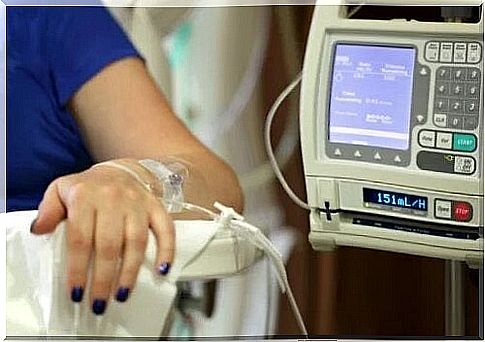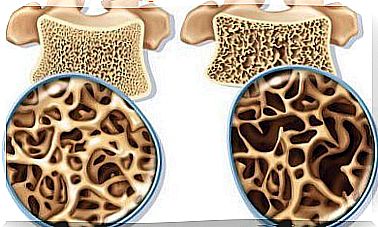Antiemetics To Prevent Nausea And Vomiting
Some drugs used to fight cancer can cause nausea and vomiting. Fortunately, there are already many effective drugs available to prevent and relieve nausea and vomiting associated with chemotherapy.

Today, there are different drugs that are effective in preventing nausea and vomiting of different origin. They are called antiemetics.
It is important to differentiate the two terms. Nausea is an unpleasant feeling in the throat and stomach that often precedes vomiting. It is usually accompanied by other symptoms such as paleness, sweating, excessive salivation, and sometimes a decrease in blood pressure and the number of beats per minute.
After nausea, retching occurs, which corresponds to the effort to vomit. These are strong contractions of the muscles of the abdominal wall. They aim to create the pressure necessary to vomit.
Gagging may be accompanied by vomiting, precede or follow it. Finally, vomiting, known clinically as emesis, is the rapid and forceful emptying or expulsion of gastric contents. Sometimes the intestinal contents are also expelled.
What are antiemetics?

As the name suggests, antiemetics are drugs used to prevent nausea and vomiting. They are normally indicated to treat motion sickness and the side effects of the following pharmacological groups:
- Opioid analgesics.
- General anesthetics.
- Targeted cancer chemotherapy.
Antiemetics fall into different groups depending on the mechanism of action they exhibit. This way, they will be effective in different situations, depending on the cause that triggers the nausea and vomiting.
In this sense, we will see the most widely used antiemetics to prevent nausea and vomiting of different origins.
Antiemetics to prevent nausea and vomiting
Antiemetics for pregnancy
Nausea and vomiting during pregnancy affects about 80% of women. They are usually mild and usually go away around the twentieth week of gestation.
The clinical evidence on the treatment of hyperemesis gravidarum remains very limited. Also, in most cases, studies have been conducted in patients with these symptoms in the mildest form.
In this sense, in Spain, only doxylamine has an authorization as an antiemetic to prevent nausea and vomiting during pregnancy. It is a histamine H1 receptor antagonist antiemetic, marketed under the name Cariban.
As a second line, metoclopramide, a dopamine antagonist, is usually administered. However, this medicine should not be taken for more than 5 days, at a dose of 10 mg up to three times a day. Ondasetron is also administered as a second line. And in the third line, methylprednisolone is indicated, adjusting the dose to the minimum effective.
Antiemetics for chemotherapy

Some drugs used to fight cancer can cause nausea and vomiting. Fortunately, there are already many effective drugs available to prevent and relieve nausea and vomiting associated with chemotherapy.
Among the most widely used antiemetics for these cases are:
- Corticosteroids : Used successfully for many years, primarily to prevent delayed nausea and vomiting. An example of these drugs is dexamethasone, which can be given in different ways.
- Serotonin antagonists : These block natural substances that send the brain signal to vomit. In this way, they prevent both acute and delayed nausea and vomiting. Some of the most commonly used are ondasetron, granisetron, and dolasetron.
- NK-1 inhibitors : these are the most recent. Aprepitant is used when patients are receiving chemotherapy that is very likely to cause acute or delayed nausea and vomiting. It is taken before a chemotherapy session and for two days after.
Antiemetics for dizziness or motion sickness

Motion sickness is also called motion sickness. It is defined as the occurrence of nausea, vomiting and symptoms produced by repeated linear and angular acceleration and deceleration.
To reduce symptoms, doctors recommend taking medication that decreases the body’s responsiveness. In this way, the recommendations are:
- For adults : 2 hours before travel, take 30 mg of antiemetic cinnarizine. Consumption of doses can be repeated every 8 hours. It can also be given between 50 and 100 mg of dimenhydrinate (Biodramina), and it can be repeated every 6 or 8 hours.
- Children : The dose should be adjusted according to the label of each drug and the use of thiethylperazine is not recommended.
Conclusion on the prevention of nausea and vomiting
Fortunately, we currently have a wide range of therapies available to prevent nausea and vomiting of different origins. Consult your doctor or pharmacist if you have any questions about these drugs in order to carry out the treatment properly and improve the therapeutic effectiveness of these antiemetics.









